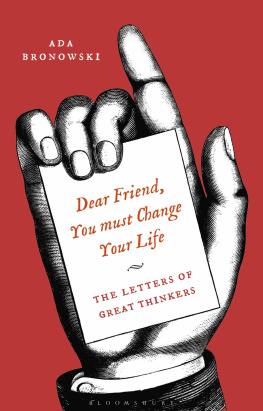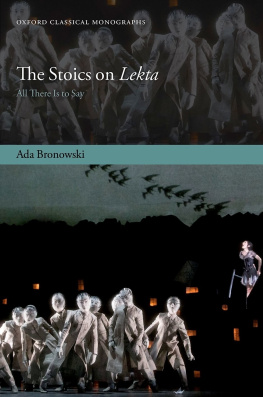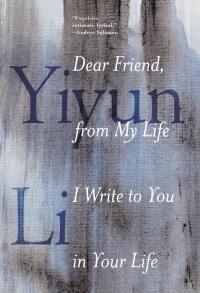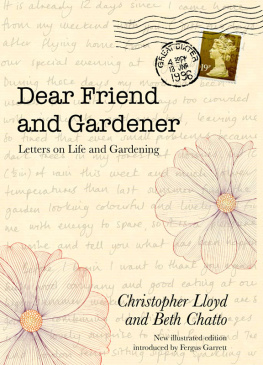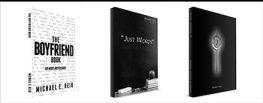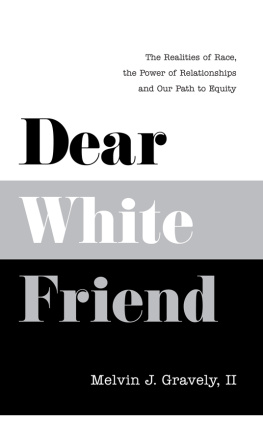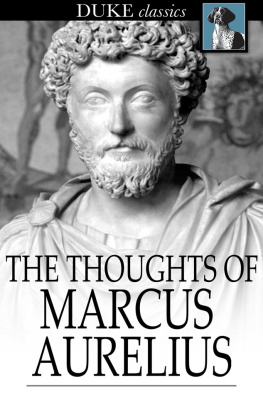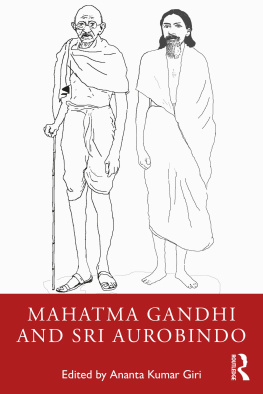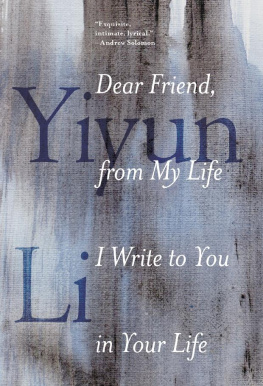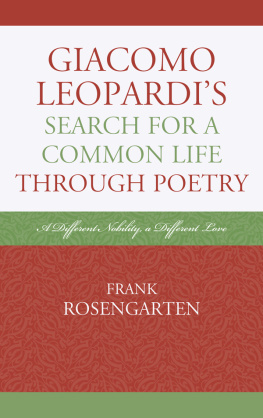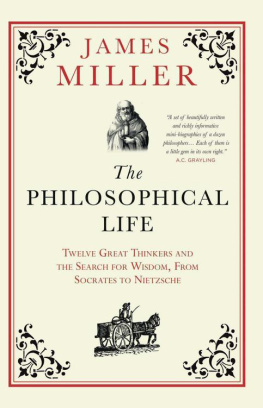
DEAR FRIEND, YOU
MUST CHANGE
YOUR LIFE
ALSO AVAILABLE FROM BLOOMSBURY
Becoming Beauvoir: A Life, Kate Kirkpatrick
Wittgensteins Family Letters: Corresponding with Ludwig, ed. Brian McGuinness
Seneca Letters: A Selection, Eliot Maunder
Luis Buuel: A Life in Letters, ed. Jo Evans and Breixo Viejo
Diaries and Selected Letters, Mikhail Bulgakov (trans. Roger Cockrell)

CONTENTS
Ada Bronowski
Here are twenty letters written by twenty intellectuals and artists as disparate in time, age and circumstance as a Roman Emperor and an English seventeenth-century Viscountess, a retiring third-century BC philosopher and a twentieth-century film director. Twenty unique voices converging around central questions about how to live our lives. From: how to face death? To: how to make life bearable? From: how to get pleasure? and for that matter, what is real pleasure? To: what is happiness? And how not to waste time? How to be good? What does it mean to be bad? Can we change? Twenty private letters tackle these eternal and universal questions.
None of these letters were written for a wide audience and none of the writers or almost none ever thought we would be reading them. In this respect, the letters collected here are not part of a public exchange of views a practice which reached its apogee in the post-Renaissance and pre-Modern Republic of Letters, in which the great discoveries of the Scientific Revolution and the ideas of the Enlightenment were made public. The opposite traits run through the letters collected here, in that they are deeply personal and, genuinely or performatively, private. No competitiveness, no rush for first place; nor is there any brilliantly mean lampooning for the entertainment of others. The privacy elicits discourses which lay bare sincere and urgent responses to the hard questions of life, which no human can escape. Yet, where privacy itself plays an argumentative role in support of the truth of what the letters intimate, the questions they address naturally open the scope of these letters. As such, their writers, knowingly or not, make room for us all as brothers and sisters in humanity to quote Flora Tristan.
The reflections developed in the letters are addressed to a friend: it is first, the friend in the flesh, anchored in the historical context of the correspondence: the man called Menoeceus, Epicuruss good friend, Andr Jacopssen, Giacomo Leopardis Swiss friend whom he met in Rome in the winter of 1822, Madame de Tess, Germaine de Stals Parisian friend, Mahatma Gandhis distant cousin Maganlal, Maurice Bejarts last star dancer affectionately nicknamed Nahuelt. But this friendship, strengthened through the impact of the confidences imparted in the letters, bursts forth out of the historical context. Through each of these addressees, it is each and every one of us who is shaken up to change our lives in the light of the urgent wake-up calls that resound in these letters.
The letters are philosophical in the sense that the Greek philosopher Plato first gave to the word, that is, that they follow paths to truth or a truth and indicate to the correspondent directions for how to follow that path. The paths proposed are not framed by any particular coded literary genre; nor do most of the twenty authors belong to the distinguished academic field called philosophy. Indeed, half of the authors presented here have no official or unofficial affiliation with the academic discipline; a handful of them have a nodding acquaintance with it, which means that they have a complicated relationship of belonging and not belonging to a mainstream canonical representation of the academic discipline; and as to those who firmly belong to that mainstream canon, they appear in their letters to a friend as surprisingly non-conforming, and at times, even as challenging some core tenets and doctrine to which their names in history have been attached. This is perhaps most evident in a letter from Ren Descartes who, in reply to his epistolary friend, Elisabeth, destitute princess of Bohemia, realises, perhaps, that to be a dualist in theory works very well, but it does not square with reality and lived experience. Did Descartes recant (in private) and was he not really committed to a separation of the mind from the body? Did a woman, not enlisted in any philosophy course at any university, open his eyes to his errors? The answer can be found in Chapters 5 and 6 of this volume.
The twenty authors presented here make up a parallel philosophical tradition in the margins of the canon, in the shadow of the Republic of Letters, developed under the protection of the private letter. For some, this is because they are women who, historically, were forced into the margins of philosophy and were only able to find a welcoming place to think and create under the protective shield of private correspondence. Others created new disciplines in themselves and had no establishment to rebel against or fawn upon. Others have a sensibility as Leopardi calls it, which makes them hybrid thinkers who belong to no one discipline and whom the academy has never been able to pin down to one specialism: half philosopher, half poet, half dancer, half political activist, half film-maker, half playwright.
A famous sonnet from 1908, The Archaic Torso of Apollo,Rilke ends abruptly and out of nowhere with the injunction, imploration or resolution: you must change your life. Rilke captures a moment of realisation and determination that, in different forms, the letters in this volume explore and develop. Where, in the microcosm of the poem, it is the fascination and wonder felt at the sight of a headless ancient sculpture that moves the poet to call everything into question, in each of the letters presented here, it is the macrocosm of everyday life which prompts analyses and discoveries of a deep truth hidden within the shapes that are perceived through experience.
It is that rallying cry to which Rilke gave poetic force and to which, explicitly or implicitly, the writers answer in these letters. Rilke famously wrote a series of Letters to a Young Poet, in which is displayed the capacity of the epistolary form to serve as a magnifying glass onto the analysis of the processes of creation. In this collection, another letter of his is presented, which applies that capacity to the examination of the lived experience of disillusion and fear. The letter expresses discursively what in the poem is effected through rigidity of form and sublime imagery, but the underlying message is ever the same: that not even experience is immediately given and that we must learn also to perceive it (see Chapter 17).
Pain and paradoxes give way to poignant admissions of the impossibility to reconcile ideals with reality: thus Leopardi reverts, desperately, to the capacity of the imagination to console us from such irreconcilable differences (Chapter 12), where the ancient god Kronos, given new life and power of speech through the satirical second-century essayist Lucian of Samosata, persuades his addressee that dreams are not so desirable after all (Chapter 4), whilst Henry David Thoreau exhorts his friend to embrace reality as it is, divested of the artifice and idealisations projected onto it (Chapter 14). The same impetus, though to very different ends, breathes enthusiasm into Johann Joachim Winckelmann who urges his friend to go and see for himself the works of art of antiquity to properly comprehend what is beauty: no books, no reproductions could ever substitute that first-hand experience (Chapter 10).
Next page
